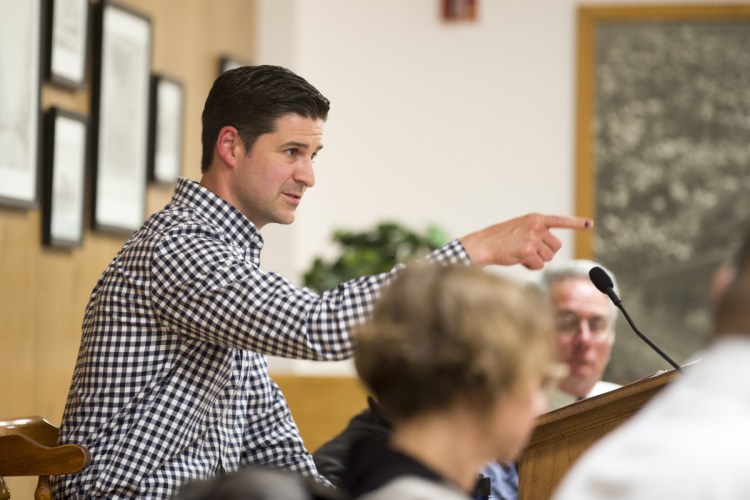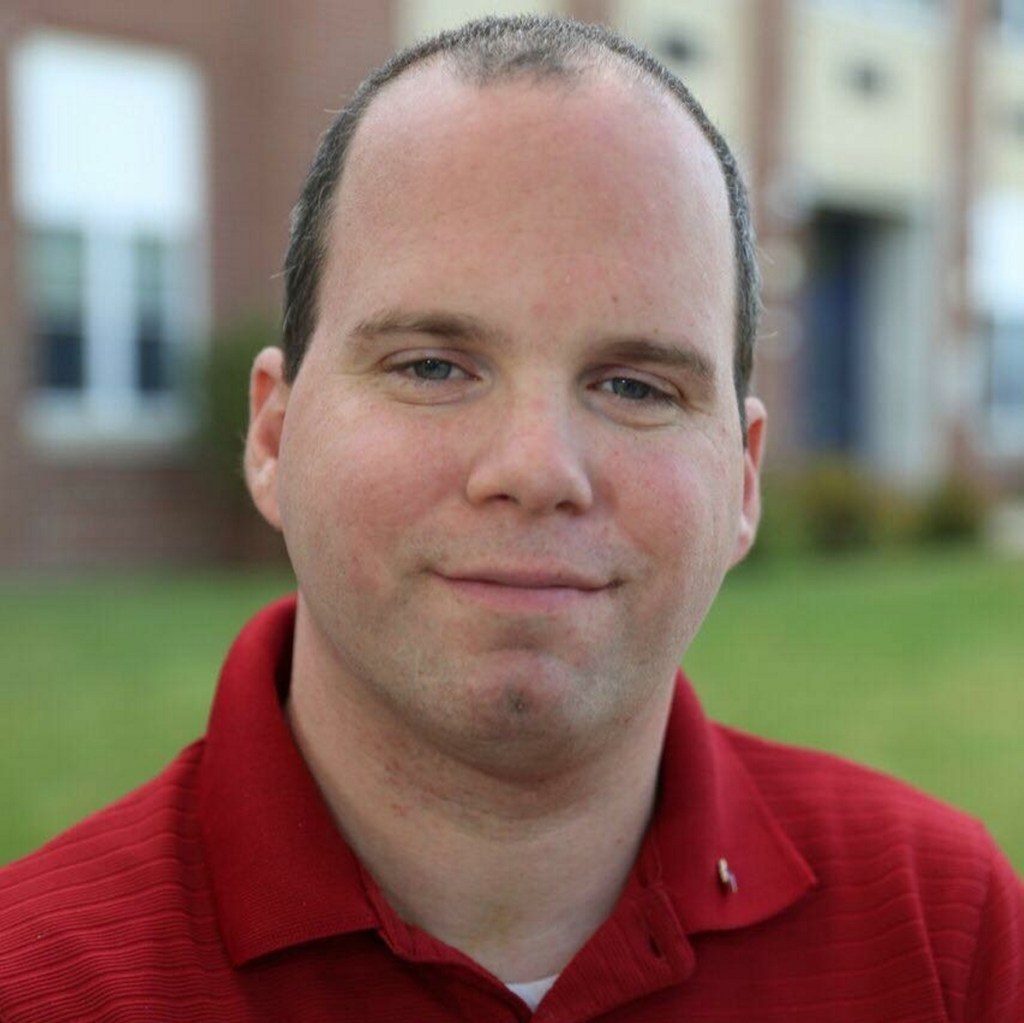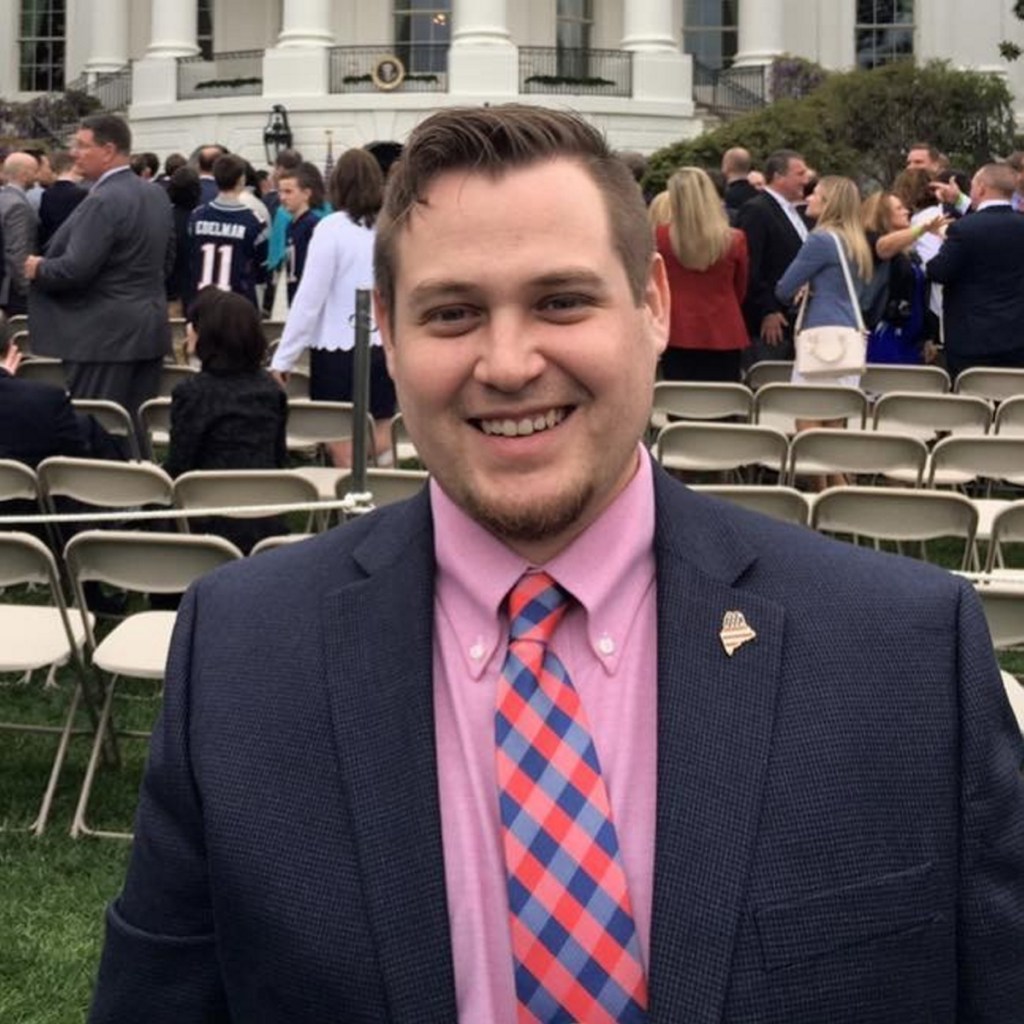Waterville Mayor Nick Isgro was mulling publicly a run for governor a year ago before deciding against it, and months later he narrowly escaped a local recall vote sparked by his social media comments toward a school shooting survivor.
Now he’s once again eying a state political position.
Isgro is among three people vying to become vice chairman of Maine’s Republican Party, and one of the other contenders claims to be running specifically because he sees the Waterville mayor as a divisive figure when the state party needs unity.
Isgro did not respond to repeated requests for comment, but the Maine GOP’s sitting vice chairman, Ryan Lorrain, said he heard about Isgro’s candidacy for the state party position through social media and personal correspondences. Individuals are not required to announce their candidacy ahead of the state committee elections on Saturday at the Senator Inn & Spa in Augusta. “Things can be determined day-of,” Lorrain said.
Lorrain added that Isgro misled him in earlier conversations about his interest in the future of the Maine Republican Party’s leadership.
“He had contacted me about a month ago and asked if I was going to be running (for vice chairman). At the time, I was planning on it, and he said he wasn’t going to,” said Lorrain. “Next thing I know — from other people — he was apparently running the entire time.”
The other candidates for the vice chairman’s post are former state representative and House minority leader Ken Fredette, of Newport, and Bangor School Committee member and Penobscot County Treasurer John Hiatt.
In an interview, Hiatt said he decided to run after learning Isgro was vying for the position.
“I think it’s important that you have someone who can try to unite all of the party,” Hiatt said.
Hiatt took particular issue with remarks Isgro has made in the past and specifically cited a tweet Isgro posted after the Parkland shootings in which he told survivor David Hogg to “eat it.”
“He’s an elected official, and he made a public statement in his position as mayor of Waterville,” said Hiatt. “When I saw that, I was just totally mortified. As a devout Catholic who believes in respecting everybody, I was shocked. … When I kind of found out he was running (for vice chairman of the Maine GOP) — I want the party to have a good image, and I thought someone who’s shaming victims of mass shootings is not a good idea. … That’s not who the Republicans are. There are a lot who are calm and collected and hold different beliefs.”
“I don’t know (Isgro). I haven’t met the gentleman,” he added. “I can’t speak to him on a personal level, but I will say on a political and policy level that when he made the political statement in regards to the Parkland (victim), it was highly inappropriate. It was totally the wrong thing to do, at a political level but also morally. You can disagree with someone on their stance, but in my opinion, we don’t attack victims.”
After spending eight years in the Legislature, Fredette said, he has professional obligations to catch up on at his law office and wants to spend time with his family, but he is concerned about the direction the Republican Party is moving in and agreed to work with former Senate Majority Leader Garrett Mason to bring the party together. After the party suffered significant losses at the polls in November, losing its majority in the Maine Senate and its hold on the Blaine House, and having its incumbent congressman lose the 2nd District seat, he thinks the party needs a shared vision and believes Mason and he can provide that leadership.
In response to a question about Nick Isgro’s candidacy for the vice chairmanship, Fredette pointed out that he himself has been active in the party since 1990 and that his experience, along with Mason’s experience, are what’s important to the party now. He said the party’s leaders should have experience recruiting candidates, raising money and developing the party’s political message, and that the top two positions shouldn’t be looked at as platforms for the next round of elections for the people holding those positions.
“I think the focus again has to be on how do we as a party move forward, whether it’s party leaders or federal candidates or Susan Collins. It all has to work together,” Fredette said. “Without trying to put spin on it, the results show that there were significant problems, and that’s a question I think Republicans have to face.”
Fredette said the party has to have a two-year and a four-year strategy as it moves ahead and that Republicans have to work together to accomplish their goals. To get elected, an individual must be nominated and seconded by committee members, who then speak on behalf of the candidate before a secret-ballot vote takes place, according to Lorrain.
Currently, former Gov. Paul LePage-backed Demi Kouzounas, of Saco, serves as party chairwoman, alongside Vice Chairman Lorrain. Kouzounas is running for re-election but faces competition for the top committee position from former Rep. Heather Sirocki, of Scarborough, and Mason, who has received the support of the Legislature’s four Republican leaders: Senate Minority Leader Dana Dow, of Waldoboro, Senate Assistant Minority Leader Jeff Timberlake, of Turner, House Minority Leader Kathleen Dillingham, of Oxford and Assistant Minority Leader Trey Stewart, of Presque Isle. Those four lawmakers also endorsed Fredette as an unofficial running-mate of Mason, writing in a letter to Republican leaders that the duo poses the strongest opportunity for the party to counter the Democrats, whose success in November “represent(s) a lack of cooperation and coordination that has existed between party headquarters and legislative leadership for far too long.”
Lorrain said that party infighting contributed to his decision not to run for vice chairman again this year, noting frustrations with Kouzounas’ leadership. He said that the results of the election for chairman of the party — the first to be determined on Saturday — will affect the outcomes of subsequent roles on the committee.
In announcing on Sunday afternoon his decision not to seek re-election, Lorrain tweeted: “It has been an honor serving in this capacity and I thank everyone for their support. That being said — to those who will be determining the direction of our party on January 12th, (it) is my hope that the future of our party will include leadership that: recognizes the importance of our Legislative races; will focus on implementing field work statewide (including knocking on doors); is dedicated towards an effective and timely absentee program; has a willingness to listen, even when we may disagree; understands that our party needs to be supportive and inclusive of all Republicans.”
In a phone interview, Lorrain added that the limitations of the position prevented him from enacting the kind of change he was hoping to.
“As vice chair you’re really — it’s kind of like owning a business and not being majority shareholder and not having a say,” Lorrain said. “As much as you’re vice chair, you’re not the director of policy — you’re kind of a sidekick, and if you don’t necessarily agree with those above you, it makes that a difficult task, and it’s frustrating at times. You don’t accomplish what you think you’re going to.”
Lorrain, who lived in Waterville for several years and graduated from Thomas College, said he plans to move back to his hometown, Norway, to work with grass-roots organizations focused on combating poverty or domestic violence, though he has not committed to a specific group at this time.
“I’m looking to get involved in something that actually impacts people positively,” he said. “This isn’t the end-all-be-all, here at the State House, for people who want to make change in their communities. … Our party has been centered around one candidate or the top of the ticket, and a lot happens lower. It’s not the sexiest, but it’s the stuff that matters.” Ultimately, Lorrain has little faith that Saturday’s election will make much of a difference.
“This election here — it won’t define the party, the actual House and Senate, the Legislature, who’s going to run for different positions,” he said. “The state party doesn’t offer that. It offers a platform which candidates stick to — or don’t — and provides structure and basically a place to gather to do the work. But in my experience in the last two years and prior to that, it hasn’t been very helpful for our legislative races, which is why I got involved, and whether that changes or not, races will continue to go on.”
Meg Robbins — 861-9239
Twitter: @megrobbins
Send questions/comments to the editors.







Comments are no longer available on this story